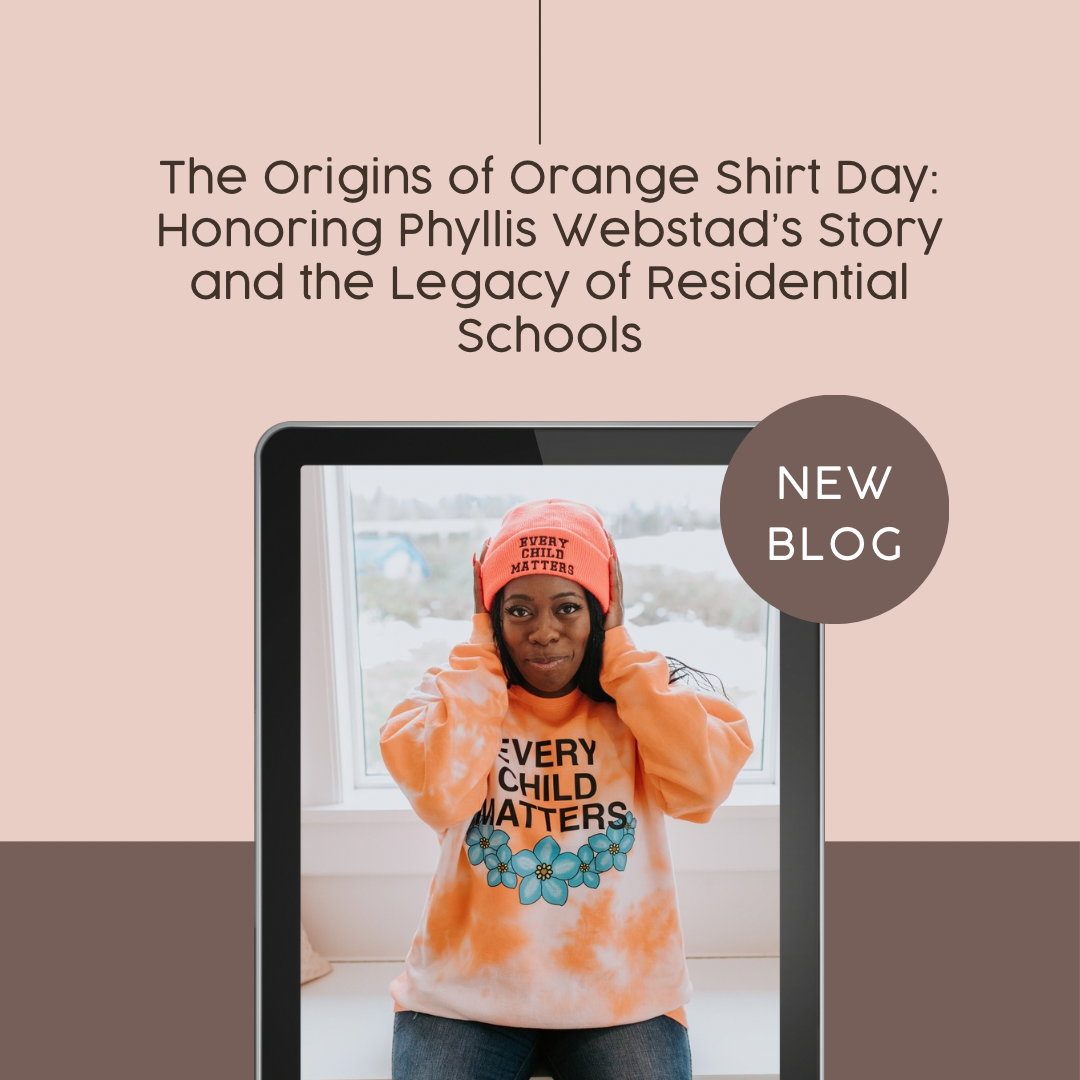
As September begins, Canadians across the country start preparing for an important day of reflection, remembrance, and education—Orange Shirt Day. Observed on September 30th, Orange Shirt Day is a powerful reminder of the tragic history and ongoing legacy of residential schools in Canada. This day is not only about remembering the past but also about fostering a future grounded in healing and reconciliation. To truly understand the significance of Orange Shirt Day, we must start with the story that inspired it all: the story of Phyllis Webstad and her orange shirt.
Phyllis Webstad’s Story
In 1973, a six-year-old girl named Phyllis Webstad from the Northern Secwepemc (Shuswap) Nation was excited to attend her first day of school at St. Joseph’s Mission Residential School in Williams Lake, British Columbia. Like many children, Phyllis was eager to begin this new chapter of her life, and her grandmother had bought her a brand new orange shirt to wear for the occasion. However, upon her arrival at the school, Phyllis’s orange shirt was taken from her, never to be returned. This simple act, seemingly insignificant to those in power, was deeply symbolic of the loss of identity, culture, and self-worth experienced by Phyllis and thousands of other Indigenous children who attended residential schools across Canada.

Phyllis Webstad was six years old in 1973 when she was put in a residential school in British Columbia and stripped of her brand new orange shirt. (orangeshirtday.org)
Phyllis has spoken openly about how the experience left her feeling as though she didn’t matter, that no one cared about her or her culture. The orange shirt became a symbol of the many ways in which the residential school system sought to strip Indigenous children of their identities and break the bonds between them and their communities.
Origins of Orange Shirt Day
Phyllis Webstad’s story did not fade away with time. In fact, it became the spark that ignited a nationwide movement. In 2013, her experience was shared during a commemoration event for residential school survivors, leading to the creation of Orange Shirt Day. This day was chosen to align with the time of year when Indigenous children were historically taken from their homes to attend residential schools—an event that brought fear and sorrow to Indigenous families.
Orange Shirt Day was established to ensure that the stories of survivors like Phyllis are never forgotten. It serves as a reminder of the harmful legacy of residential schools and a call to action for Canadians to engage in the ongoing process of reconciliation.
The Symbolism of the Orange Shirt
The orange shirt, once a simple piece of clothing, has become a powerful symbol in Canada. It represents the experiences of thousands of Indigenous children who were forcibly taken from their families and placed in residential schools. These schools, which operated across Canada from the late 19th century until the last one closed in 1996, aimed to assimilate Indigenous children into Euro-Canadian culture by eradicating their languages, traditions, and identities.
The act of wearing an orange shirt on September 30th has grown to symbolize the commitment to reconciliation and the recognition that every child matters. It is a visual reminder of the resilience of survivors, the strength of Indigenous cultures, and the collective responsibility to address the injustices of the past.

Conclusion
As we approach Orange Shirt Day on September 30th, it’s important to reflect on the origins of this day and the story of Phyllis Webstad. Her experience is a poignant reminder of the deep wounds inflicted by the residential school system—a system that sought to erase the identities of Indigenous children. By wearing orange, we honor the survivors, remember those who never returned home, and recommit ourselves to the path of reconciliation.
Let this be the first step in a month of learning, reflection, and meaningful action. Orange Shirt Day is more than just a day of remembrance; it’s a call to all Canadians to take an active role in creating a future where every child truly matters.
